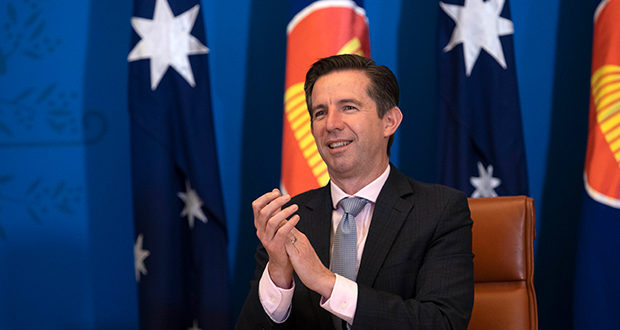Australia has ratified one of the largest trade agreements in history despite concerns that it may deter reform to the aged care system.
Federal parliament passed the enabling legislation for the Regional Comprehensive Economic Partnership (RCEP), without making aged care exempt from trade liberalisation.
Advocates and trade experts have warned that this loophole could potentially enable foreign investors to dispute reforms and limit regulation.
ANMF NSW trade spokesperson Michael Whaites said the decision to pass the legislation without amending aged care came as a “shock”.
“Increased accountability and transparency requires tighter regulation, not less regulation,” said Whaites.
“This represents either an oversight by the government, or it represents a belief by the government that the aged care system is currently over-regulated, which would fly in the face of the royal commission’s findings.”
Australia signed the RCEP last year along with 14 other countries including China, New Zealand, Japan and Indonesia.
The partnership will create a trade grouping that covers about 30 per cent of the world’s population.
While aged care was excluded from the government’s list of services exempt from trade liberalisation, health care, child care and public transport have all been listed.
Speaking in parliament, Federal Minister for Trade Dan Tehan assured that aged care would be covered under the general health exemption in the RCEP agreement.
In a series of public hearings, the Australia Fair Trade Network argued that UN classifications used in trade agreements code aged care differently from health care and social welfare services.
A spokesperson from the Department of Foreign Affairs and Trade told Aged Care Insite that the agreement “will not prevent or impair the implementation of any of the recommendations of the Royal Commission into Aged Care Quality and Safety".
“All aged care operators must comply with Australia’s laws and regulation, irrespective of ownership," said the official spokesperson.
“The RCEP agreement preserves the Government’s right to regulate to ensure that domestic and foreign aged care providers meet high quality standards across the entire aged care sector.”
The Regional Comphrenseive Economic Partnership (RCEP) is set to come into force on January 1 2022.
Do you have an idea for a story?Email [email protected]
 Aged Care Insite Australia's number one aged care news source
Aged Care Insite Australia's number one aged care news source


I would like to congratulate Eleanor on an excellent article.
The risks for the aged care sector from multilateral trade agreement provisions and Investor State Dispute Settlement provisions have not received the attention warranted by the potential impact on the community. This is particularly so for the Aged Care sector as was highlighted by the Royal Commission into Aged care Quality and Safety. Trade agreement provisions have potential implications for regulation of the aged care sector through a number of pathways from ownership of care facilities to who educates the carers. It also has implications for care conditions of recipients of care and employment conditions of nurses and carers recruited through the Temporary Entry for Business Persons provisions. Trade agreements have evolved in the past two decade to include a number of provisions that increasingly encroach on these essential services and begin to impede government capacity to regulate in the public interest.
I am in the final year of my PhD at Nursing and Midwifery, Monash and my research is about this very topic.
Keep up the good work
Kind regards
Dianna